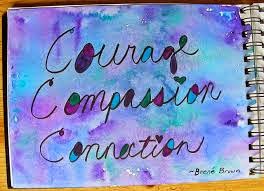The
Sovereign Importance of Compassion
The Golden Rule lies at the heart of all religions. Imagine what the world
would be like if everyone followed it! If every person genuinely tried to
behave to the rest of humankind with a concern and care for how they would
feel. As it says in the Charter for
Compassion:
“Compassion impels us to work tirelessly to
alleviate the suffering of our fellow creature, to dethrone ourselves from the
centre of our world and put another there, and to honour the inviolable
sanctity of every single human being, treating everybody, without exception,
with absolute justice, equity and respect.”
For me, increasingly, the central importance of the
Golden Rule is at the heart of my own system of thought and belief, my own
theology. Whether we follow the positive imperative of Jesus: “Do to others whatever you would have them do to you.”, or the negative
imperative of Confucius: “What you do not want done to you, do not do to
others”, the message is the same.
The Charter for Compassion invites us to “restore compassion to the centre of morality and religion,
to return to the ancient principle that any interpretation of scripture that
breeds violence, hatred or disdain is illegitimate, to ensure that youth are
given accurate and respectful information about other traditions, religions and
cultures, to encourage a positive appreciation of cultural and religious
diversity, to cultivate an informed empathy with the suffering of all human
beings—even those regarded as enemies.”
If we want to
make our religion more compassionate, it is we that have to do it - we
who have to be the change we want to see in the world. We have to take
responsibility for our own traditions. It is no good waiting for
"them" to do something - even if "them" is the General
Assembly of Unitarian and Free
Christian Churches
If we are to
embrace the Golden Rule, we need to start here, where we are. Let us ask
ourselves the questions
- Have I shown mutual respect and goodwill
to my friends and neighbours?
- Have I practiced constructive tolerance
and openness towards the sincerely-held beliefs of others?
- Am I doing as I would be done by?
- Am I doing my best to avoid giving pain
to others?
As
Unitarians, there are things that we can all do to bring compassion into the
heart of our denomination, from the small acts of kindness we do to each other
and in the wider world, to supporting social justice issues that promote
tolerance, inclusivity, and peace. And supporting them by doing something
practical, not just giving a donation and forgetting about it. We can set up
engagement groups to discuss Armstrong’s book Twelve Steps to a Compassionate Life; we can preach about
compassion from the pulpit, and most importantly, we can strive to follow the
Golden Rule ourselves, and lead by example.
If we can encourage and support our congregations to do the same, I do
believe that we could make a real difference to the world we live in, for the
better.



